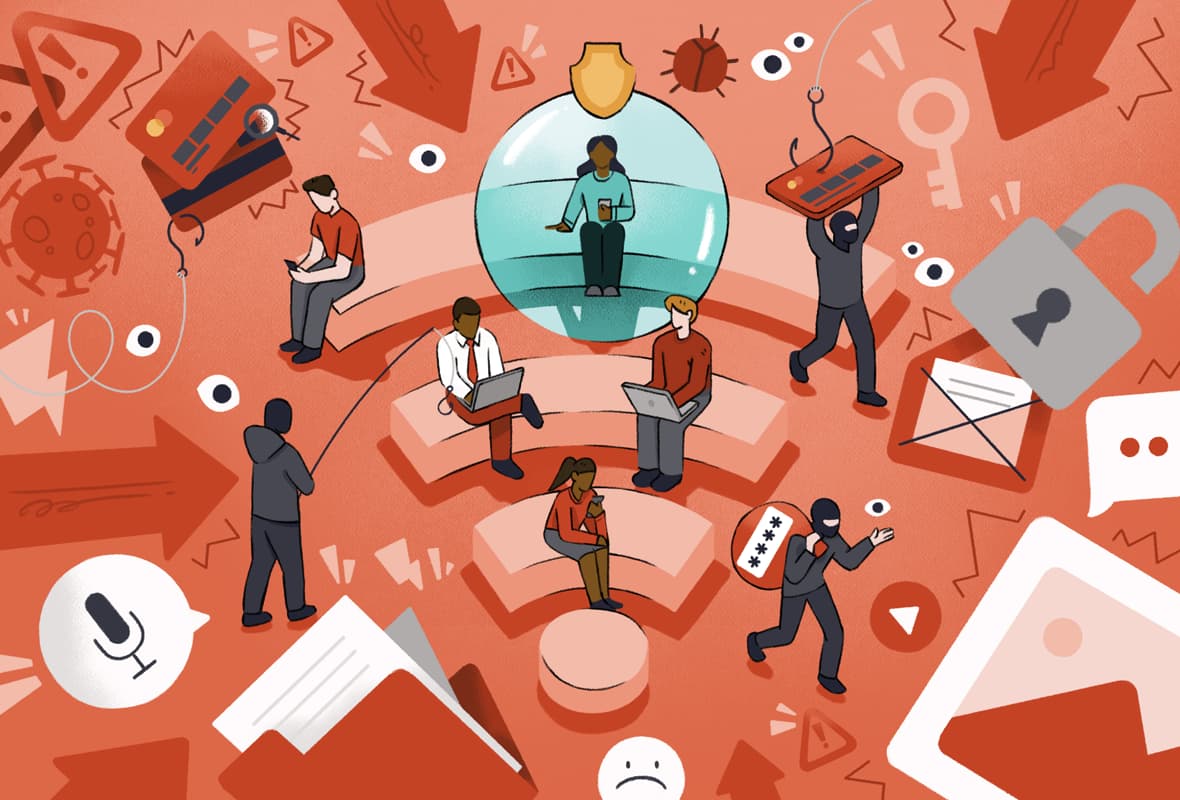A public Wi-Fi network helps you stay connected to the internet, even when you don’t have access to cellular data or any other form of Wi-Fi (such as your home Wi-Fi). While a public Wi-Fi network is a blessing, it can turn into a nightmare for you if you aren’t careful while using it.
However, this goes to say for public Wi-Fi networks, not the ones that you have at home, since they are already pretty secure.
For instance, an Xfinity Internet connection comes with an integrated Advanced xFi gateway that has built-in security features to keep you safe as you browse the internet. Not only that, but the Xfinity Internet prices are another bonus since the internet connection gives you top-notch security at a very affordable rate. Not only that, you can also get access to millions of secure Xfinity Wi-Fi hotspots all over the U.S.
However, the real deal is keeping yourself safe while you are on a public Wi-Fi network, as it requires constant vigilance and responsibility.
Here are some things that you can do to keep yourself safe while you are on a public Wi-Fi network.
Confirm That You’re Connected to the Right Network
If you know what an “Evil Twin” attack is, then you know how crucial it is to connect yourself to the right network.
For those who don’t know, an Evil Twin attack is when someone sets up a network of their own with a very believable name. Once you connect to it, the hacker can then hack into your devices, such as your smartphone or laptop.
Therefore, it is important that you connect to the right network so that you don’t end up getting caught up in a cyberattack.
So, make sure that you pay close attention to the name of the network that you’re connecting to. If it seems shady, don’t connect it to it at all. It’s better to sit without an internet connection instead of getting your personal data compromised. You can also ask an employee about the legitimate connection so that you connect to a safe network.
Avoid Transmitting Any Sensitive Information
A public Wi-Fi network shouldn’t even be the last thing that you transmit your sensitive information through.
While it may seem harmless, there aren’t any safety measures that would keep you safe as you use the internet, contrary to your personal Wi-Fi at home, which has several security features.
Sensitive information typically includes your Social Security Number (SSN), credit card number, PIN codes, banking details, and so on. You should also keep in mind that some public Wi-Fi networks ask you to sign in with an email address so that you can use the internet connection.
In that case, it is always best that you set up a new email address for this purpose only. After that, you don’t have to use that email again, or you can just use it for public Wi-Fi networks. This way, you won’t have to hand out your personal email address everywhere that you go. There’s always the fear of your email address being stored and then sold, so it is always best to prepare yourself to prevent it.
Use a VPN Before Using the Internet
A VPN is a Virtual Private Network that masks your device’s IP address with another one and also hides your location, which adds another essential layer of security to your internet connection. A VPN creates a private, encrypted tunnel through which your internet data flows.
This way, you can make your internet connection more secure, it’ll be as if you’re a ghost on the public Wi-Fi.
So, before you head to your favorite coffee shop and connect to the internet, make sure you go prepared with a VPN and make great use of it. If you want better security features, then you should try getting a paid VPN service from reliable providers such as NordVPN or ExpressVPN.
Enable Two-Factor Authentication
Your internet security is just like an onion – it has layers of security that you can keep adding by using the right tools. Just like that, 2FA (Two-Factor Authentication) is another layer of security that you can add to your personal information as you use the internet.
Once you enable 2FA, you have to enter your username, password, and then a code that is sent to your phone through a text message or an email.
This makes it difficult for a hacker to access your account even if they already have your password. They can’t make their way in unless they have your OTP (One-Time Password), so be sure to never share your OTP with anyone, no matter what.
These are some of the most basic steps you can take to make yourself secure as you use public Wi-Fi. Be sure to follow all of these precautionary steps to ensure the safety of your personal data and identity!
Keep an eye for more latest news & updates on Hoseasons!

